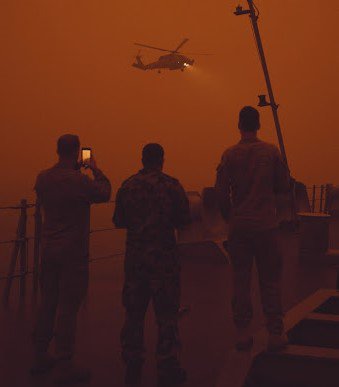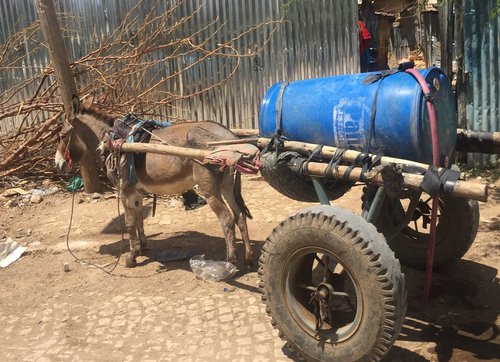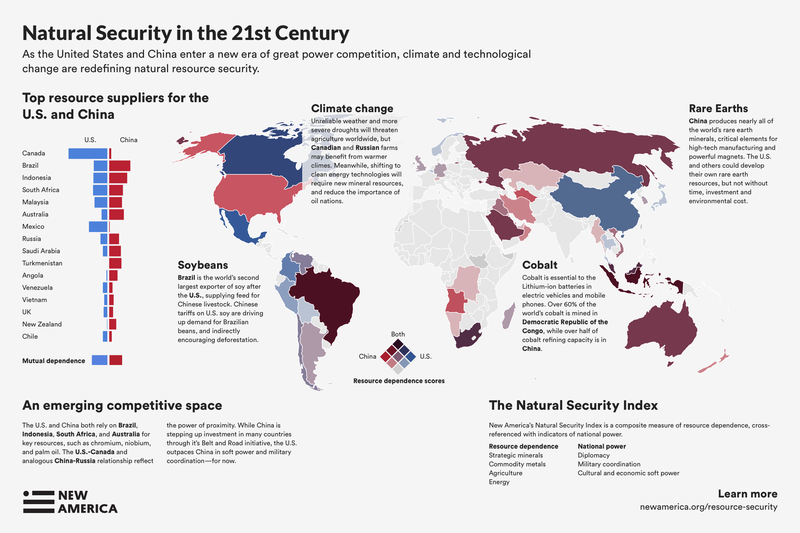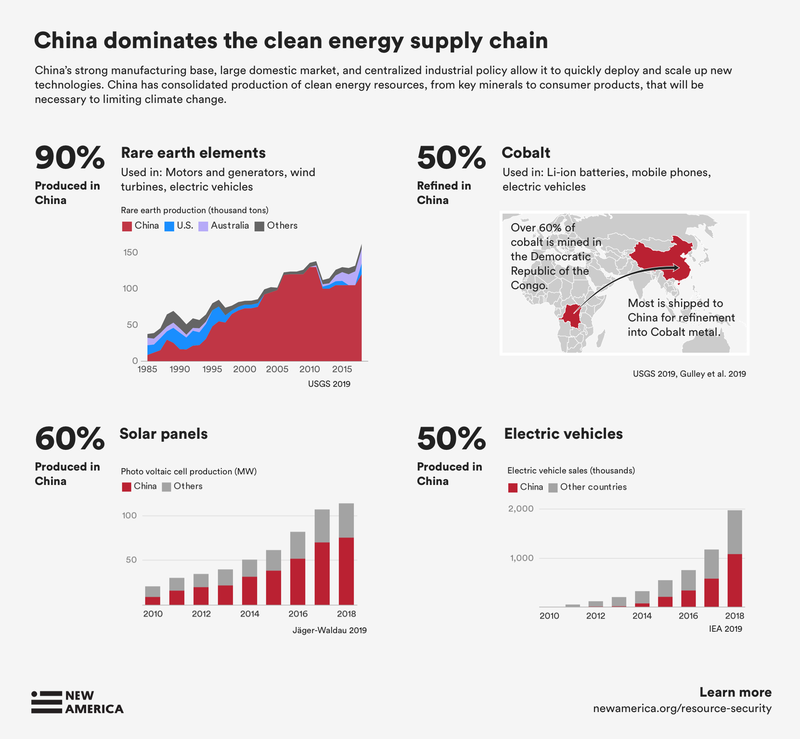A year in brief from the Resource Security Program
Blog Post

Feb. 4, 2020
2019 was a busy time for global resource security. The year started with historic floods across the American midwest, the first of the nation’s 14 billion dollar disasters last year, and ended with Australia in flames, all against the drumbeat of scientific warnings about climate change and biodiversity loss.

The Resource Security team worked across all these issues and more in 2019. We focused on Phase Zero, a two-year research project on new tools for conflict prevention and security building in a time when climate change is shifting the risks to peace. We connected with hundreds of individuals and organizations, published or provided commentary, and released original, new research. Thank you to all our partners, friends, and supporters, especially Bruce Lowry at the Skoll Foundation, for a great year. Here’s a look back at some of the program’s accomplishments in 2019 and sneak peek for 2020.
Photo - HMAS Adelaide docked off the coast at Eden, NSW during Operation Bushfire Assist 2020, courtesy Department of Defence, Commonwealth of Australia.
Conflict Prediction
The team collaborated over the course of the year on conflict prediction models, including as part of the international Water, Peace, and Security Partnership.

In the report “Forecast Cloudy: A Case Study in Predicting Conflict Risk,” Peter Kerins of the World Resources Institute, along with Sharon Burke, looked at use cases for the Water, Peace, and Security Partnership model. This involved field research in Ethiopia with Peter and WRI’s Liz Saccoccia (who both helped build the model), along with Sharon and Resource Security’s Rachel Zimmerman. Mercy Corps’s terrific Ethiopia team hosted part of the visit and we touched base with former Resource Security team member Emily Gallagher, now part of the USAID mission in Addis Ababa.
Throughout the year, Sharon (and Rachel, before she left for grad school) also participated in DARPA’s World Modelers Forum, a state-of-the-art R&D project to anticipate conflict and evaluate policy options. Sharon will be part of a test team for a use case on food security in Ethiopia.
Photo - Water supply in Jigjiga, Ethiopia, Courtesy of Sharon Burke.
Climate Security and Great Power Competition
Phase Zero, our signature research effort in 2019, looked at potential geostrategic effects of climate change, using some insights from the Global Change Assessment Model.

Wyatt Scott, Francis Gassert, and Sharon Burke, in collaboration with partners at the Joint Global Change Research Institute, wrote a major report about climate change and great power competition between the United States and China: “Great Power Resource Competition in a Changing Climate.”
Sharon and Wyatt wrote about China and the potential impacts of climate change on the country’s natural security in the report: “Phase Zero: China’s Natural Security.”
Elise Campbell, Francis, Sharon, and Wyatt participated in the first annual conference of the Environmental Peacebuilding Association (Resource Security is a founding member), presenting a poster and speaking about the program’s research on great power competition. Sharon spoke on two other panels, as well.
Sharon testified before the House Armed Services Committee, Subcommittee on Readiness concerning climate change, military installations, and operational readiness. Sharon also spoke to the Senate Climate Change Task Force and the House Sustainable Power Initiative and attended a Joint Session of Congress at the invitation of the Chair of the House Select Committee on the Climate Crisis.
Disaster Resilience
Worldwide, the natural disaster picture is changing, raising the importance of investments in resilience and response. Resource Security looked at this new landscape in Asia and at home in the United States.
Along with New America’s National Network, we co-hosted “Disaster Tech for Resilient People,” which brought together disaster managers, technologists, advocates, and journalists to discuss how technology can help meet the needs of underserved populations.
Elise Campbell and Hana Passan summarized the key findings from the Disaster Tech event and offered policy proposals in “All Disasters Are Local. Resilience Should Be, Too.”
Francis Gassert is currently working with the Pacific Disaster Center on incorporating climate data into their DisasterAware tool.
International Climate Security Cooperation
Thanks to two of Europe’s top think tanks, Berlin-based adelphi and Stockholm-based SIPRI, the Resource Security program played a part in consultations about climate change in the United Nations Security Council throughout 2019. This included Sharon Burke’s participation as a delegate to the Berlin Climate and Security Conference.
At the end of the year, the UK Foreign and Commonwealth Office invited Sharon to address NATO Policy Planners meeting on the margins of the 70th annual NATO Summit, along with Malin Mobjörk of SIPRI and Nick Mabey of E3G.
Geopolitics of Natural Resources
We spoke and wrote about a range of natural security topics all year, from energy to biodiversity. But one topic continued to rise to the top: minerals critical to the clean energy transition, as well as tech and military uses.

Sharon Burke and Rachel Zimmerman wrote a report on critical mineral resources in the abyss in: “The Global Race for Critical Minerals in the Deep Ocean.”
Sharon and Wyatt Scott wrote about America’s need for a critical minerals strategy in The Hill: "U.S. needs a strategy for minerals competition: It’s not just rare earths."
Wyatt spoke about all of the program’s research at American University.
Sharon spoke across a range of resource security topics, including for a PBS energy documentary, to the Corps of Cadets at West Point, on the television program Government Matters, and as part of various expert panels. Two big highlights of the year for her were speaking in the plenary session of the Berlin Energy Transition Dialogue and at the Global Special Operations Forum in Belgium.
Looking Ahead to 2020
For 2020, Resource Security will continue redefining the risks to national security to include natural resources. We’ll start the year with the release of Uptempo: Humanitarian and Disaster Relief in the Indo-Pacific. We’ll continue to collaborate with partners on actionable research and better resource security decision support tools, including some exciting new climate security work with Mercy Corps and adelphi. We’ll take a look at better climate change and critical minerals governance in the United States, as well as at the United Nations and NATO. We’re exploring some new concepts on biodiversity with Ohio University. You don’t need hindsight to see it will an eventful year!